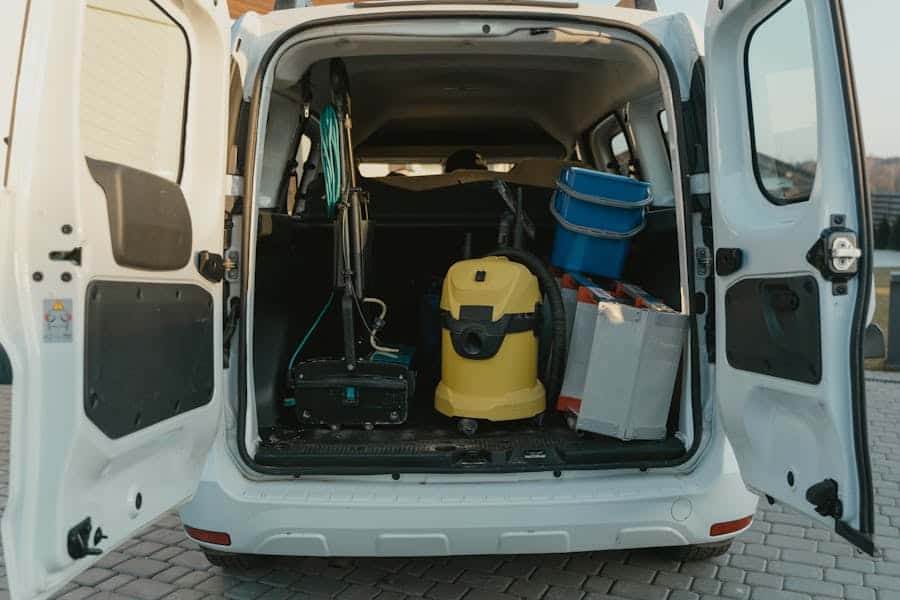Sanitation businesses depend on precision, organization, and time management. From waste collection to equipment servicing, success relies on accurate scheduling, effective communication, and streamlined operations. Manual processes can slow progress, increase costs, and reduce customer satisfaction. Modern tools designed for the sanitation industry help companies operate smoothly and deliver consistent service. These technologies enhance efficiency, reduce human error, and allow teams to focus on growth and customer care.
Optimizing Scheduling and Dispatching
Scheduling forms the foundation of sanitation operations. Coordinating teams, vehicles, and equipment requires accurate timing and clear visibility. Manual scheduling creates confusion and leads to missed appointments. Automated scheduling tools solve these problems through real-time updates and intelligent routing.
Software that manages dispatching allows companies to assign jobs efficiently. Routes adjust based on traffic, location, and priority, saving time and fuel. Mobile applications give drivers and field workers instant access to their schedules, ensuring everyone stays aligned.
Automated reminders reduce no-shows and improve communication with customers. Digital scheduling creates order and structure that increase productivity across every department.
Streamlining Billing and Accounting
Financial management affects every stage of sanitation business operations. Manual invoicing often leads to errors, missed payments, and administrative delays. Automation tools simplify accounting tasks, ensuring that billing remains accurate and timely.
Invoicing software generates digital bills instantly after service completion. Integration with payment systems allows clients to pay online, improving cash flow and convenience. Recurring billing features handle long-term service contracts effortlessly.
Accounting platforms organize expenses, track revenue, and manage tax records efficiently. These systems provide real-time insights into financial performance, helping managers make informed decisions. Automation reduces manual entry and improves accuracy, freeing teams to focus on service quality and client relationships.
Managing Customer Relationships
Customer satisfaction drives repeat business. Customer relationship management tools (CRM) store contact information, track service history, and record communication preferences. This data helps sanitation companies deliver personalized service and quick responses.
A strong CRM system enables instant access to customer details, making it easier to resolve issues or adjust future service plans. Automated reminders notify clients about upcoming appointments or equipment maintenance.
Clear communication builds trust. When customers feel valued and informed, they remain loyal. Technology strengthens these relationships through organization and consistency.
Leveraging Integrated Business Platforms
Sanitation companies benefit from software that combines scheduling, billing, routing, and customer management into a single platform. These integrated systems eliminate data duplication and confusion. Information flows seamlessly across departments, improving accuracy and efficiency. For instance, tools like ServiceCore provide sanitation businesses with comprehensive management solutions. Their platform handles everything from route optimization to invoicing in one system. Integration improves collaboration between office staff and field workers while reducing administrative time.
A unified platform simplifies reporting and performance tracking, giving managers full visibility into operations. Integration eliminates the need for multiple disconnected tools, allowing smoother daily operations and better long-term planning.
Improving Inventory and Equipment Tracking
Sanitation businesses depend on reliable equipment such as pumps, containers, and vehicles. Keeping track of assets ensures consistent performance and timely maintenance. Inventory management tools monitor usage and location to prevent shortages and unnecessary expenses.
Automated tracking systems record equipment movement and maintenance schedules. Real-time updates prevent downtime from missing or malfunctioning assets. Managers receive alerts when repairs or replacements are due, avoiding unexpected disruptions.
Proper inventory control improves resource allocation. Companies spend less on emergency purchases and maintain a stronger operational flow. This organization keeps businesses running efficiently and reduces costs associated with inefficiency.
Using Mobile Technology for Field Operations
Mobile technology connects field workers with office systems. Through smartphones or tablets, employees receive assignments, update job statuses, and capture service details instantly. Real-time communication ensures accurate reporting and faster decision-making.
Mobile tools allow drivers to document work completion through photos or digital signatures. These updates sync automatically with the company database, eliminating paperwork and manual entry.
Mobile platforms improve accountability and transparency between field and office teams. They ensure that operations remain smooth and accurate regardless of location.
Automating Reporting and Compliance
Compliance plays a major role in sanitation services. Businesses must follow strict environmental regulations and maintain accurate documentation. Automation tools simplify compliance tracking through digital recordkeeping and report generation.
Software platforms produce inspection logs, permit records, and disposal summaries automatically. These reports ensure compliance with industry standards and government requirements. Automation prevents errors that could result in fines or legal complications.
Instant access to compliance data strengthens credibility during audits or client evaluations. Technology ensures accuracy and consistency across all reporting obligations.
Sanitation businesses thrive when they combine technology with organization and clear strategy. Tools that manage scheduling, routing, billing, and customer communication create structure and efficiency. Platforms that integrate these functions into one system provide complete control and visibility. Automation reduces errors, improves accountability, and supports sustainable practices. Through innovation and digital management, sanitation companies strengthen their operations and deliver reliable, high-quality service.


